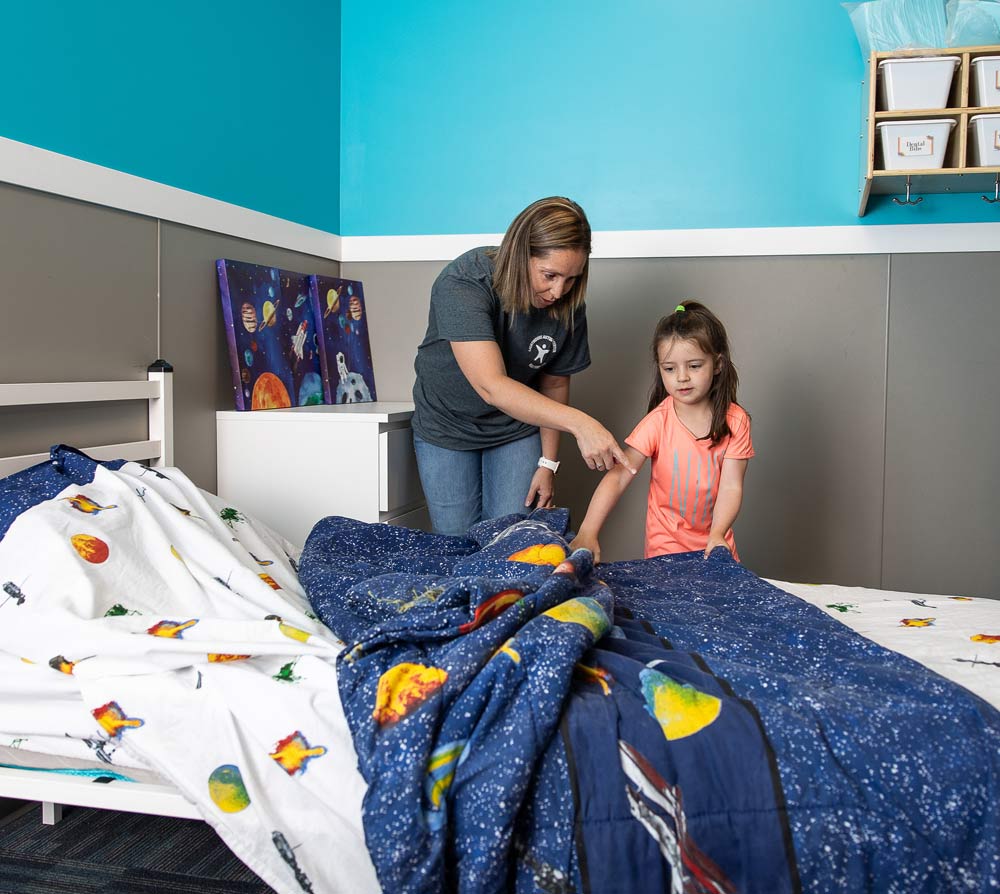Where to Start
Being the parent or caregiver of an autistic child brings with it a unique set of experiences, joys, and challenges. Regardless of where you may be in your family’s autism journey, there is a variety of resources and tools available to support you and the unique needs of your child and family. We encourage families to gather as much information as they can from reputable sources to understand what resources for children with autism are available to them, and what steps to take next.
Tips from a Lighthouse Board Certified Behavior Analyst
Lighthouse Autism Center believes that a parent knows their child best, and is best equipped to support them. However, we know that parents often look to providers and clinicians for guidance, tools, and autism information to support their child and family and to implement in the home. For families who may be on waitlists for services, whether that be ABA therapy, speech therapy, occupational therapy, or other intervention services, we often hear about the need for help at home while they wait.
Lighthouse Autism Center’s team of Board Certified Behavior Analysts (BCBAs) compiled a list of topics and goals that parents may want to work on at home. We have included that list below, as well as some steps that you can consider implementing with your child. Remember, while we have provided a general list of tips, this is not meant to replace a customized therapy program.
Connect with the Lighthouse Team
Our Family Outreach Team is here to help.


